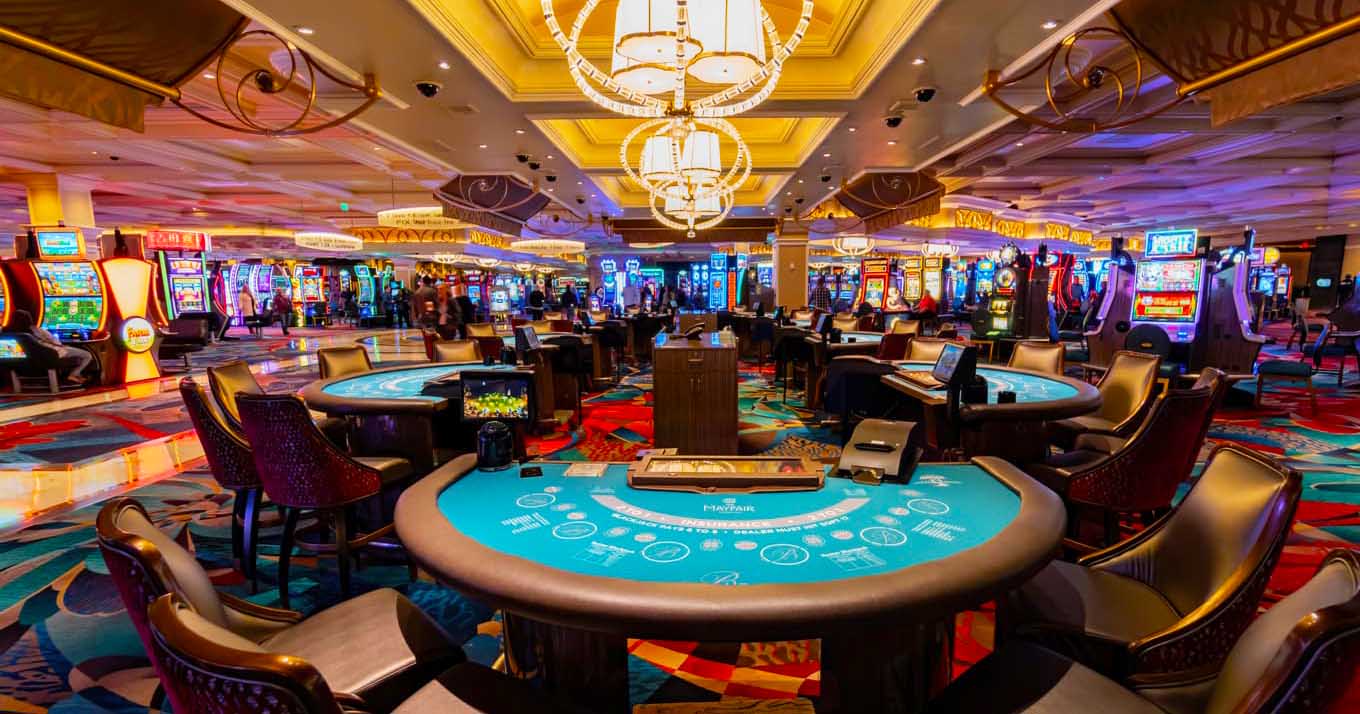
Casino activities have long been linked with the thrill of risk and the anticipation of luck. Many players walk into a casino with the belief that their success hinges solely on luck. However, a deeper examination reveals that these games encompass much more than just the factor of luck. Understanding the rules, approaches, and human psychology behind casino games can greatly enhance the enjoyment and improve one’s chances of winning.
On the other side of the alluring sounds of spinning reels and gameplay, casino games involve a complex mix of expertise, tactics, and decision-making. Whether you are playing blackjack, poker, or even baccarat, knowing the tactics can significantly influence the result of the game. Moreover, the psychology of the players and understanding the probabilities behind each game can shift the balance of success away from mere chance. By recognizing these layers, players can appreciate casino games as a blend of entertainment and intellectual challenge, transforming their approach from one of idleness to one of active engagement.
The Psychological Aspects of Gambler’s Behavior
Understanding the psychology behind gambling demonstrates that player behavior is motivated by far more than mere luck. The thrill of risk, immediate reward, and the potential for winning large sums can create a powerful emotional experience. Numerous players become captivated by the excitement, which can lead to a cycle of heightened betting and risk-taking, often driven by a hopeful hopefulness that colors their views of success probabilities.
An additional crucial element of the psychology of casino games is the illusion of control. Many gamblers feel that their decisions, such as the selection of games or wagering strategies, can significantly influence the outcome. Such a belief can enhance their engagement and enjoyment, but it also adds to persistent gambling behavior, as players often ignore the role of randomness within the games. The thrill derived from making choices gives players a feeling of involvement, which can be deceptive in terms of grasping the true odds involved.
Additionally, the environment of the casino holds a crucial role in influencing a gambler’s experience. Factors like illumination, sounds, and the presence of fellow gamblers create a stimulating atmosphere that enhances the thrill of the game. This thoughtfully crafted environment can lead individuals to lose track of time and money spent, as they become enveloped in a sensory experience that heightens their affective investment. Recognizing these psychological dynamics is essential for understanding why casino games entice players and keep them returning for more.
Skill vs. Luck in Casino Games
In the field of casino games, the argument between expertise and chance is a prominent one. Many players think that fortune is the dominant factor, especially in games like slot machines where results are random. However, there are games that clearly demonstrate the importance of expertise, such as poker and blackjack, where players can apply tactics and decisions that affect their overall performance. betflik Understanding the dynamics and intricacies of each game can greatly impact a player’s performance and results.
The importance of expertise becomes clear when examining the different tactics accessible to players. In games like poker, for example, players must read their rivals, assess probabilities, and make informed decisions based on their cards and the shared cards. This depth of strategy demonstrates how proficient players can consistently surpass novices, proving that winning is not solely based on chance but rather on the use of knowledge and expertise. Similarly, in blackjack, players can use techniques like card counting to gain an edge over the casino, further showing the importance of expertise.
On the flip side, luck cannot be completely ignored in any casino game. While skill can enhance a player’s odds of winning, unpredictable outcomes still play a significant role. Even the most effective strategies can falter due to the random nature of card draws or spins. This interplay between skill and chance creates a dynamic gaming environment where players must adjust and react to random events while also leveraging their skills. Ultimately, effective gambling gaming is a mix of both elements, contributing to the complexity and excitement of the experience.
Methods for Success
To succeed in gaming, players must comprehend the importance of creating a strategy designed to the particular game they are engaging with. Each game has its own set of guidelines, chances, and nuances that require a considerate approach. For instance, in titles like blackjack, players can utilize techniques such as statistical tracking to make more informed decisions and enhance their potential of winning. Grasping the probabilities and rewards associated with each game can enable players to make better choices and elevate their general play experience.
Financial control is another crucial strategy that cannot be ignored. Players should define a financial limit for their gaming sessions and adhere to it. This promises that they do not exceed and helps establish a level of control over their play behavior. Choosing in advance what to stake and when to walk away can avoid emotional decisions that frequently cause major setbacks. Effective bankroll management enables players to savor gambling without the concern of losing more than they can afford.
Lastly, drawing lessons from gameplay and noticing other players can provide valuable perspectives. Many successful players invest time reviewing not only their self-play but also that of others. This scrutiny can expose new methods and approaches, ultimately promoting better decision-making. Participating in self-reflection after gaming sessions helps players recognize what succeeded and what didn’t, permitting them to refine their strategies over time. By combining knowledge, discipline, and awareness, players can boost their odds of triumph in casino games.